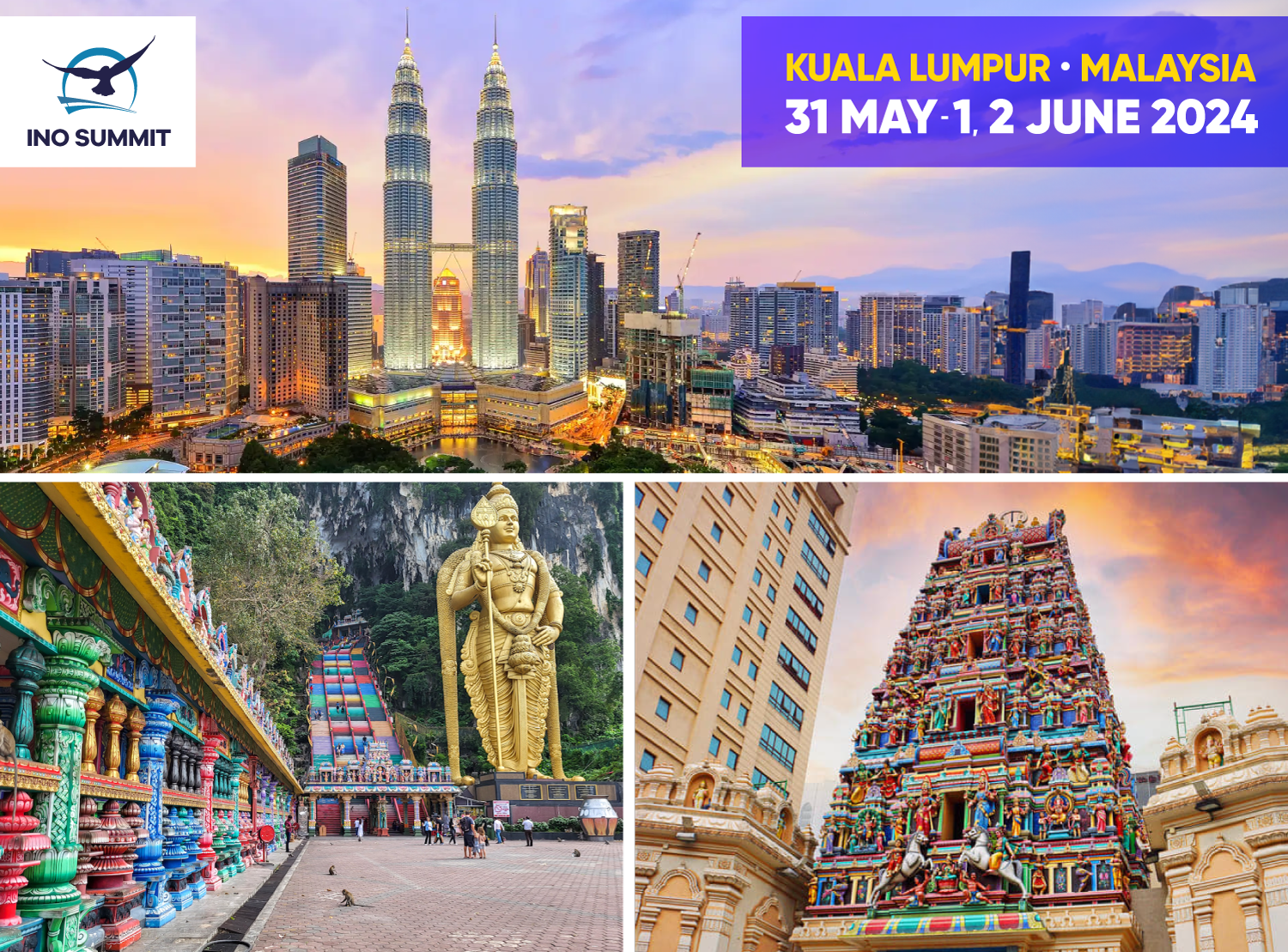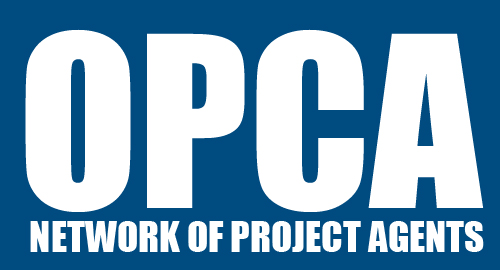
| AGM MAINPAGE |
REGISTRATION | SPONSORSHIP | ACCOMMODATION | AGENDA | KUALA LUMPUR | FLIGHT/VISA | ACTIVITIES | AGM ATTENDEE LIST |
SUMMIT ATTENDEE LIST |
Kuala Lumpur, also known as KL is the capital city of Malaysia, boasting gleaming skyscrapers, colonial architecture, charming locals, and a myriad of natural attractions. Divided into numerous districts, its main hub is called the Golden Triangle which comprises Bukit Bintang, KLCC and Chinatown. KL is widely recognised for numerous landmarks, including Petronas Twin Towers (the world’s tallest twin skyscrapers), Petaling Street flea market, and Batu Caves, which is over 400 million years old.
With frequent sales events throughout the year, expansive shopping malls like Pavilion KL and Suria KLCC are also among the biggest tourist attractions in the city, hosting a wide range of upmarket labels from all over the world. There is the abundance of gastronomic delights – with thousands of hawker stalls, cafes, and restaurants serving every imaginable type of delicacies in Kuala Lumpur.
Kuala Lumpur and its surrounding urban areas form the most industrialised and economically, the fastest growing region in Malaysia. Kuala Lumpur is a centre for finance, insurance, real estate, media and the arts of Malaysia. Kuala Lumpur is rated as an alpha world city, and is the only global city in Malaysia. Other important economic activities in the city are education and health services. Kuala Lumpur also has advantages stemming from the high concentration of educational institutions that provide a wide-ranging of courses. Numerous public and private medical specialist centres and hospitals in the city offer general health services, and a wide range of specialist surgery and treatment that caters to locals and tourists.
As the political, economic, cultural, culinary, and spiritual capital of Malaysia, Kuala Lumpur features both old-world charm and modern convenience, at times served up in an apparently chaotic manner, but always with a gracious smile.
For more Information about Kuala Lumpur >> https://en.wikipedia.org/wiki/Kuala_Lumpur

The transportation in Kuala Lumpur is just great. The entire city can be explored by taxi, bus, train and metro. However, the main junctions in KL city center are often extremely crowded (usually from 8am to 9am and from 6.30pm to 8pm). Apart from that you can use public transportation to travel from KL to other cities in Malaysia.
*Train
With bustling KL Sentral Station, the largest train station in Southeast Asia, serving as the hub, three ambitious rail systems tie the city together. The RapidKL LRT and KTM Komuter train service over 100 stations, while the KL Monorail connects 11 more stations dotted around the city center. Although seemingly complex at first glance, the trains are actually a well priced and fairly efficient alternative to plying through Kuala Lumpur's infamous traffic.
*Taxi
Taxis should be a last resort for getting around Kuala Lumpur, both because of the cost and the need to inch through traffic-clogged streets. If you must use a taxi, insist that the driver uses the meter; they are technically required by law to use it but often try to name a price instead. The red-and-white taxis are the cheapest, while the blue taxis are more expensive. Taxi drivers who loiter around bus and train terminals to stalk tourists are typically the ones that want to haggle rather than use the meter. Even once the meter is turned on, don't be surprised if they do a few circles to run up your fare!
*Buses
Buses in Kuala Lumpur are an extremely cheap option for getting around the city, however, they are frequently crowded and make frequent stops in heavy traffic. Many long-haul buses from Kuala Lumpur to destinations such as Penang and the Perhentian Islands depart from the newly renovated Puduraya bus terminal -now called Pudu Sentral- near Kuala Lumpur Chinatown.
You'll occasionally catch a glance of the double-decker hop-on-hop-off buses circulating throughout their 22-stop route. The tour buses hit all the major sights in KL, offer commentary in eight languages, and as the name suggests, you can get on and off as many times as you like between 8:30 a.m. and 8:30 p.m. with a single ticket purchase. While the buses are supposed to pass by their stands every 15 minutes to collect passengers, many customers report waiting much longer; the buses are subject to city traffic like all other road vehicles. The journey can take over 90 minutes depending on traffic.
Climate
With a tropical rainforest climate Kuala Lumpur's temperature is constant throughout the year. The monsoon/rainy season is officially from October to March, however in the remaining months you can expect some heavy rainfall as well. Throughout the year it is nice and sunny in Kuala Lumpur. The only thing to keep in mind is the high humidity in some periods of the year. On average, the temperatures are always high. A lot of rain (rainy season) falls in the months of: January, February, March, April, May, June, July, August, September, October, November and December. On average, the warmest month is April. On average, the coolest month is July. April is the wettest month. This month should be avoided if you don't like too much rain. During our meeting in June climate falls within the dry season and features some of the greatest weather of the whole year. In June, the afternoon temperatures reach an average high of 32°C, while the nighttime temperatures range around 23°C.
Language
The official language of Kuala Lumpur is Bahasa Malaysia. However, many residents are well-versed in English and speak it as their first language. It is widely used in business and education sectors. Cantonese and Mandarin languages are spoken by the Chinese population. Other languages are Tamil, Malayalam, Telugu, Hindi, Punjabi, etc. spoken by the Indian minority and Minangkabau and Javanese spoken by the Indonesians.
Time
Malaysian Standard Time is 8 hours ahead of Greenwich Mean Time ( GMT+8 ).
Currency and Credit Cards
The Malaysian currency is called the Ringgit. Ringgit Symbols: MYR (in currency exchange), RM (to express prices). One Ringgit is divided into 100 Sen. Malaysian coins come in 5, 10, 20 and 50 Sen denominations in a variety of different materials and finishes. Banknotes are available in denominations of 1, 5, 10, 20, 50 and 100 Ringgits. The exchange centres can be found at airports, most hotels, and in large shopping centres. The popular international credit and debit cards, such as VISA, MasterCard, Cirrus and Maestro are generally accepted nationwide in larger establishments. Recommend you to tell your bank in advance that you’re travelling abroad so that your card isn’t blocked, it can help avoid an embarrassing and awkward situation later. Please also make sure you have some cash on you too, just in case of any issue.
Electricity
In Malaysia the power sockets are of type G. The standard voltage is 240 V and the standard frequency is 50 Hz.
Business Hours
All government offices are opened 5-days a week. The official operating hours for most retail shops and shopping centers in KL are from 10.00 am to 10.00 pm. Government offices operate from 8.00 am to 4.30 pm on weekdays only. Banking hours are from 9.15 am to 4.30 pm on Mondays to Fridays and post offices open from 8.30 am to 5.30 pm on Mondays to Saturdays. On the contrary, KL is famous for its round-the-clock eating time, hence you'll see many eateries are open for 24 hours a day, 7 days a week. In some parts of KL, street side shopping happens from 3.00 pm until midnight.
Shopping
Kuala Lumpur is known as a Shopping Heaven. Especially in the central district of KL (also known as KLCC - Kuala Lumpur City Center), you can find a variety of shopping malls. The following malls are favorites, and certainly worth a visit: Pavilion KL, Midvalley Mega Mall & The Gardens, Berjaya Times Square, Suria KLCC and 1 Utama. Most malls are located at the Bintang Walk, along Jalan Bukit Bintang. Shopping in KL seems like an activity no one will ever get fed up with. Most malls are opened daily between 10 am and 10 pm. The only downside is that after a few visits every mall will start to look like the one before. Many of the shops in one mall can also be found in others. Fortunately, after a while you will know exactly where to shop. There are several sales yearly; these usually take place in the months of August, May and December.
Tipping
In Malaysia tipping is not required and will not be expected. A 10% service charge will normally added to the bill and many locals round-up the bill and leave the change.
Emergency Numbers
Police / Ambulance: 999
Fire / Bomba : 994
KL Tourist Police: 03-2149 6590
Civil Defense: 991
***NOTIFICATION***
+ MEMBERS NEED TO LOG IN "OPCA WEBSITE" TO REGISTER OPCA 8TH AGM KUALA LUMPUR, MALAYSIA!
+ NON-MEMBERS NEED TO CONTACT "OPCA MANAGEMENT" TO REGISTER OPCA 8TH AGM KUALA LUMPUR, MALAYSIA!
+ CONTACT US: info[AT]overseasprojectcargo.com

